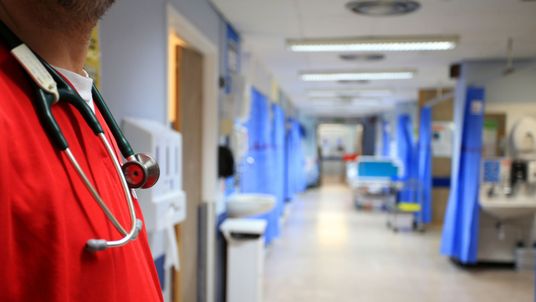Waiting times for cancer care in England are the longest on record, the latest figures have revealed, forcing tens of thousands of patients every month to wait longer than they should to see a specialist or start treatment.
The NHS’s performance against seven of its nine cancer waiting times targets has fallen to its worst ever level, prompting concern about patients having their diagnosis or treatment delayed.
The worsening of fast access to cancer care was revealed in NHS England’s latest monthly batch of data showing how quickly hospitals are providing key services, including surgery and A&E care against targets that are supposedly patient rights enshrined in the NHS constitution.
The figures also showed that the number of people waiting for operations such as hip and knee replacements and cataract removals has risen again to just over 6.1 million – yet another new record high. Almost 24,000 have been waiting for more than two years.
For example, while 93% of people who GPs suspect may have cancer should be seen by a specialist within two weeks of their urgent referral, in January just 75% were – the lowest proportion ever. While 152,093 of the 202,816 people GPs referred to hospital were seen within two weeks, another 50,723 – one in four – were not.
Similarly, although 96% of people with confirmed cancer should start treatment within 31 days of doctors deciding to treat them, just 89.6% did so. That means that 2,644 of the 25,524 patients had to wait longer than a month to start receiving chemotherapy, have radiotherapy or undergo surgery.
And an even smaller proportion of people with cancer who should start treatment within 62 days of being referred by a GP did so in January. While the target is 85%, hospitals only managed to treat 61.8% of them in that time, which meant that 5,161 people had their care delayed.
“It is deeply troubling to see these figures now at yet another worst-ever record, as we know that any delay to diagnosis and treatment causes huge amounts of anxiety and distress for people living with cancer”, said Eve Byrne, the director of advocacy at Macmillan Cancer Support.
While the figures cover a period in which the Omicron variant of Covid-19 was putting hospitals under pressure, performance across the nine different waiting times was worse than a year earlier when they were grappling with the Delta variant, which left more people seriously ill than Omicron.
“More people than ever before are facing unacceptably long waits for vital cancer tests and treatment,” said Michelle Mitchell, the chief executive of Cancer Research UK.
“Winter pressures and Omicron combined have only added weight to a historically overburdened NHS, but staff shortages were holding down efforts to improve cancer survival well before this.”
Wes Streeting, the shadow health secretary, who was treated last year for kidney cancer, said: “I know from experience the importance of an early cancer diagnosis and quick treatment. Too many cancer patients are left waiting for unacceptable lengths of time, with the insecurity of not knowing.
“The Conservatives use the pandemic as an excuse, but that doesn’t explain why cancer patients have been waiting longer every year since 2010.”
Over the last 12 months a total of 424,382 people with suspected cancer have not seen a specialist within two weeks, 19,861 of those diagnosed with the disease did not start treatment within 31 days and 50,049 had to wait longer than the supposed maximum 62 days.
The performance data also showed that:
- Just 73.3% of people who attended A&E in January were treated within four hours – the joint lowest ever figure – even though the target is 95%.
- Ambulances are taking longer to respond to 999 calls, both for emergency and also urgent calls.
- More than a third of young people needing treatment for potentially life-threatening eating disorders are waiting more than 12 weeks.
Prof Stephen Powis, NHS England’s national medical director, stressed that “despite ongoing pressures our hardworking NHS staff delivered 280,000 more tests and checks for patients in January compared to the same time last year, and almost 1.24 million started consultant-led treatment, as more people continue to come forward for care who may have been reluctant to seek help during the pandemic.”
Source: The Guardian

